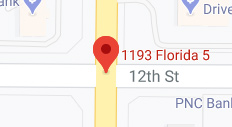Appendicectomy
Appendicectomy or Appendectomy is the surgical removal of appendix, a small finger-shaped organ attached to the cecum (first part of the colon). Appendicectomy is indicated in appendicitis, the inflammation of appendix and can be done two ways.
The older method, laparotomy, removes the appendix through a single incision in the lower right area of the abdomen. The newer method, laparoscopic surgery, uses several smaller incisions and special surgical tools fed through the incisions to remove the appendix.
The surgeon makes an incision over the abdomen and inserts a harmless gas into the abdominal cavity to expand the viewing area of the abdomen. Surgeon inserts trocar into an incision through which the laparoscope is introduced into the abdomen. Additional small incisions may be used for inserting surgical instruments to be used during the procedure. With the images from the laparoscope as a guide, the surgeon can look at the appendix and determine the extent of the problem and removes the appendix. Once the appendix is removed the area is washed with sterile fluid to minimize the risk of infection. The tiny incisions are closed and covered with small bandages. Laparoscopic surgery leads to fewer complications, such as hospital-related infections, and has a shorter recovery time.
Surgery occasionally reveals a normal appendix. In such cases, many surgeons will remove the healthy appendix to eliminate the future possibility of appendicitis. Occasionally, surgery reveals a different problem, which may also be corrected during surgery. Sometimes an abscess forms around a burst appendix called an appendiceal abscess. An abscess is a pus-filled mass that results from the body’s attempt to keep an infection from spreading. An abscess may be addressed during surgery or, more commonly, drained before surgery. To drain an abscess, a tube is placed in the abscess through the abdominal wall. CT is used to help find the abscess. The drainage tube is left in place for about 2 weeks while antibiotics are given to treat infection. Six to eight weeks later, when infection and inflammation are under control, surgery is performed to remove what remains of the burst appendix.
Click on the below tabs to know more
Procedures
- Hernia RepairLaparoscopic Hernia Repair – TEP and TAPPNissen Fundoplication Surgery with Hiatal hernia repairHernia Repair — Open Surgery for Inguinal Hernia
- EndoscopyGastroscopyERCPColonoscopyFlexible Sigmoidoscopy
- Adhesion
- Laparoscopic Cholecystectomy
- Bile Duct surgery
- Pancreas Surgery
- Anti-reflux Surgery
- Gastrojejunostomy
- Splenectomy
- Polypectomy
- Bowel Resections (Colectomy)
- Laparoscopic Surgery















